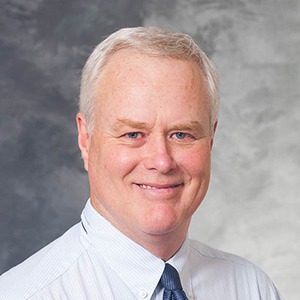

Dr. Zachary Morris, vice chairman in the Department of Human Oncology, and Dr. Jamey Weichert, professor in the Department of Radiology, along with a talented team of UW researchers, have earned a five-year, $12.5 million National Institutes of Health Research Program (P01) Grant (plus $2 million in institutional matching funds) to study the combined use of immunotherapy and targeted radionuclide therapy (TRT) to treat metastatic cancer.
Our immune system is capable of killing cancer cells. However, many cancer cells avoid destruction by displaying proteins on their surface that inactivate our immune cells. A specific type of immunotherapy treatment, immune checkpoint inhibitors, targets this mechanism to help restore immune cells’ ability to recognize and kill cancer cells. However, immune checkpoint inhibitors are only effective for a small subset of cancer patients with immunologically “hot” tumors—typically those with many mutations and infiltrating T cells. A critical mission is to increase the percentage of cancer patients who respond effectively to these promising immunotherapy agents.
Dr. Morris reports, “This comprehensive preclinical research program brings together two distinct classes of cancer treatment (radiation and immunotherapy). This work will give us a very good understanding of the principles of how these therapies can work together and what might be the best approach to use them in combination clinically. We hope that combining these therapies will increase the response and cure rates for potentially any cancer.”
In previous preclinical research, Dr. Morris and others have studied the effects of radiation on local immune response and found radiation therapy to be a “very potent immune modulator.” In animal models, Dr. Morris and his colleagues have been able to successfully treat metastatic disease by delivering radiation to a single tumor site in combination with immune checkpoint inhibitors. In this setting, radiation creates an in situ vaccination, a treatment that converts a patient’s tumor into a focus for improved immune recognition of cancer cells. This approach worked on small distant disease sites but was less effective in settings of well-established or larger distant tumors.
“Sometimes you can achieve results in the lab that may not very closely mimic what you would encounter in the clinic,” Dr. Morris says. “In most patients, tumors have been in place for months, not just days. In more established tumors, the microenviroment is often capable of suppressing an anti-tumor immune response.”
To overcome the suppressive effects of such tumor microenvironments, Dr. Morris and his colleagues began looking at ways to deliver radiation to all tumor sites in order to modulate the tumor microenvironment and tumor cells at each of these locations to be more susceptible to anti-tumor immune response. External beam radiation is often not a feasible option to target all tumor sites for patients with metastatic cancers in part because the dose to normal tissues, including bone marrow, the blood, and lymphatic tissues could suppress the patient’s immune system.
TRT offers another way to deliver radiation to tumors. In 2018, Drs. Morris and Weichert received a National Institutes of Health Cancer Moonshot grant to begin studying the use of immunotherapy in combination with TRT. TRT agents are composed of a radioactive element that is selectively targeted to cancer cells or the tumor microenvironment, often by a targeting vector. For this, the team uses an agent developed by Dr. Weichert, Y-NM600, composed of radioactive yttrium bound to a lipid targeting vector that is selectively taken up and retained in most cancer cells, regardless of their location in the body. The TRT is administered intravenously and selectively taken up by tumors to deliver a low dose of radiation to all tumors. Rather than killing the cancer cells, this low dose of radiation temporarily eradicates suppressive lymphocytes in the irradiated sites. This can help restore the immune system’s ability to recognize and kill cancer cells. The radiation also increases the susceptibility of tumor cells to the immune response by causing DNA damage that leads to the release of double-strand DNA in the cytoplasm of the tumor cells. This mimics infection by a DNA virus and tricks the tumor cells into activating viral response pathways that make them more easily recognized and killed by the immune system.
“We’ve seen some initial success, but that was only a snapshot. This new P01 grant will enable us to go from considering the possibilities of these individual therapies to developing a much more comprehensive understanding of these modalities and how they can be integrated and optimized to drive anti-tumor immune response.” Dr. Morris says. “We’ve seen this approach work with one targeted radionuclide, but there are many radionuclides and each has a different profile—the way it emits radiation over time, how far it travels, its off-target effects.”
With the P01 grant, Dr. Morris and his colleagues will systematically investigate other TRTs that are already being used clinically as well as those they consider most promising. “We’ll investigate which properties of a targeted radionuclide therapy are going to be optimal for enhancing the anti-tumor immune response,” he says. “We hope to find which types of radionuclides work best, which vectors work best, and at the same time using different immunotherapy approaches. We’ll be looking at multiple types of immune responses and how they interact with different types of radionuclides from different types of vectors. We’ll be looking at the dose and range of radiation, and the radiobiological impact of radiation from these various radionuclides, all of which can have different immune effects.”
This research is a large collaborative effort involving many UW researchers. Team members include immunologists and oncologists (Dr. Paul Sondel, Dr. Doug McNeel), radiochemists (Dr. Reinier Hernandez), nuclear physicists (Dr. Jon Engle), medical physicists and radionuclide dosimetry experts (Dr. Bryan Bednarz, Dr. Joe Grudzinski), radiation oncologists/radiobiologists (Dr. Paul Harari, Dr. Randy Kimple), microscopy imaging experts and cell biologists (Dr. Melissa Skala), veterinary oncologists (Dr. David Vail), pharmaceutical/mass spectrometry experts (Dr. Lingjun Li), bioinformatics/biostatistics experts (Dr. Michael Newton, Dr. KyungMann Kim, Dr. Irene Ong, Dr. Jens Eickoff), and critical administrative coordinators (Shari Piaskowski and Lori Uttech-Hanson). The research is also supported by the UW Carbone Cancer Center’s many core facilities and a multitude of unique research facilities here at UW-Madison.
“Many other institutions may have these resources individually, but to have them all in one place is unique,” Dr. Morris says. “The University of Wisconsin is one of the few, if not the only, institutions in the world that could propose this research and be ready to begin making progress on day one.”
Dr. Paul Harari, Department of Human Oncology chairman notes, “This incredibly talented multidisciplinary team led by Drs. Morris and Weichert is beautifully positioned to make unprecedented discoveries regarding how radiation may augment the effectiveness of immunotherapy for cancer treatment. The University of Wisconsin is emerging as a worldwide leader in this important arena of cancer research and therapeutics for the future.”